- Home
- Lucy Monroe
Moon Craving
Moon Craving Read online
Table of Contents
Title Page
Copyright Page
Dedication
Chapter 1
Chapter 2
Chapter 3
Chapter 4
Chapter 5
Chapter 6
Chapter 7
Chapter 8
Chapter 9
Chapter 10
Chapter 11
Chapter 12
Chapter 13
Chapter 14
Chapter 15
Chapter 16
Chapter 17
Chapter 18
Chapter 19
Chapter 20
Epilogue
Teaser chapter
“Lucy Monroe captures the very heart of the genre.”
—Debbie Macomber
Moon Awakening
“Simply awesome … Stunningly sexy and emotionally riveting … Easily one of the best paranormals I’ve ever read!”—Joyfully Reviewed
“An exciting tale, Moon Awakening is a book I highly recommend, and I can’t wait for the next story.”
—Romance Reviews Today
“A sensual, humorous story with intriguing and entrancing characters … Outstanding … I’m looking forward to future stories.”—Fresh Fiction
PRAISE FOR LUCY MONROE AND HER NOVELS
“[A] wicked and wonderful temptation … Tempt Me is … for any reader hungry for passion and adventure. Give yourself a treat and read this book. Lucy Monroe will capture your heart.”
—New York Times bestselling author Susan Wiggs
“If you enjoy Linda Howard, Diana Palmer, and Elizabeth Lowell, then I think you’d really love Lucy’s work.”
—New York Times bestselling author Lori Foster
“Monroe brings a fresh voice to historical romance.”
—USA Today bestselling author Stef Ann Holm
“A light read with many classic touches … Highly enjoyable.”—Romantic Times
“Extremely romantic.”—Fresh Fiction
“Lucy Monroe is an awesome talent.”—The Best Reviews
“A fresh new voice in romance.”—Debbie Macomber
“Fast-paced and sensual.”—Booklist
“Romance as only Lucy Monroe does it … Joy, passion, and heartfelt emotions.”—The Road to Romance
“A perfect 10! First-rate characterization, clever dialogue, sustained sexual tension, and a couple of jaw-dropping surprises.”—Romance Reviews Today
“An intense, compelling read from page one to the very end. With her powerful voice and vision, Lucy packs emotion into every scene … [A] sizzling story with tangible sexual tension.”—Bestselling author Jane Porter
“Lucy has written a wonderful full-blooded hero and a beautiful, warm heroine.”—Maggie Cox
“A charming tale … The delightful characters jump off the page!”—Theresa Scott
Berkley Sensation titles by Lucy Monroe
TOUCH ME
TEMPT ME
TAKE ME
MOON AWAKENING
MOON CRAVING
THE BERKLEY PUBLISHING GROUP
Published by the Penguin Group
Penguin Group (USA) Inc.
375 Hudson Street, New York, New York 10014, USA
Penguin Group (Canada), 90 Eglinton Avenue East, Suite 700, Toronto, Ontario M4P 2Y3, Canada
(a division of Pearson Penguin Canada Inc.)
Penguin Books Ltd., 80 Strand, London WC2R 0RL, England
Penguin Group Ireland, 25 St. Stephen’s Green, Dublin 2, Ireland (a division of Penguin Books Ltd.)
Penguin Group (Australia), 250 Camberwell Road, Camberwell, Victoria 3124, Australia
(a division of Pearson Australia Group Pty. Ltd.)
Penguin Books India Pvt. Ltd., 11 Community Centre, Panchsheel Park, New Delhi—110 017, India
Penguin Group (NZ), 67 Apollo Drive, Rosedale, North Shore 0632, New Zealand
(a division of Pearson New Zealand Ltd.)
Penguin Books (South Africa) (Pty.) Ltd., 24 Sturdee Avenue, Rosebank, Johannesburg 2196,
South Africa
Penguin Books Ltd., Registered Offices: 80 Strand, London WC2R 0RL, England
This is a work of fiction. Names, characters, places, and incidents either are the product of the author’s imagination or are used fictitiously, and any resemblance to actual persons, living or dead, business establishments, events, or locales is entirely coincidental. The publisher does not have any control over and does not assume any responsibility for author or third-party websites or their content.
MOON CRAVING
A Berkley Sensation Book / published by arrangement with the author
PRINTING HISTORY
Berkley Sensation mass-market edition / February 2010
Copyright © 2010 by Lucy Monroe.
All rights reserved.
No part of this book may be reproduced, scanned, or distributed in any printed or electronic form without
permission. Please do not participate in or encourage piracy of copyrighted materials in violation of the
author’s rights. Purchase only authorized editions.
For information, address: The Berkley Publishing Group,
a division of Penguin Group (USA) Inc.,
375 Hudson Street, New York, New York 10014.
eISBN : 978-1-101-17166-0
BERKLEY® SENSATION
Berkley Sensation Books are published by The Berkley Publishing Group,
a division of Penguin Group (USA) Inc.,
375 Hudson Street, New York, New York 10014.
BERKLEY® SENSATION and the “B” design are trademarks of Penguin Group (USA) Inc.
http://us.penguingroup.com
For all of the readers who asked and e-mailed about this book. Your enthusiasm for this world and desire to read the next story blessed me so much. Hearing from you helped me to keep working on it even when so many other things were vying for my attention. And I thank you! I sincerely hope Talorc and Abigail’s story is worth the wait. It was a very special story for me to write and one that I hope connects with all your hearts!
Hugs and blessings,
Lucy
Prologue
Millennia ago God created a race of people so fierce even their women were feared in battle. These people were warlike in every way, refusing to submit to the rule of any but their own … no matter how large the forces sent to subdue them. Their enemies said they fought like animals. Their vanquished foes said nothing, for they were dead.
They were considered a primitive and barbaric people because they marred their skin with tattoos of blue ink. The designs were usually simple. A single beast was depicted in unadorned outline, though some clan members had more markings, which rivaled the Celts for artistic intricacy. These were the leaders of the clan and their enemies were never able to discover the meanings of any of the blue-tinted tattoos.
Some surmised they were symbols of their warlike nature, and in that they would be partially right. For the beasts represented a part of themselves these fierce and independent people kept secret at the pain of death. It was a secret they had kept for the centuries of their existence while most migrated across the European landscape to settle in the inhospitable north of Scotland.
Their Roman enemies called them Picts, a name accepted by the other peoples of their land and lands south … they called themselves the Chrechte.
Their animal-like affinity for fighting and conquest came from a part of their nature their fully human counterparts did not enjoy. For these fierce people were shape-changers and the bluish tattoos on their skin were markings given as a right of passage. When their first change took place, they were marked with the kind of animal they could change into. Some had control of that chan
ge. Some did not. And while the majority were wolves, there were large hunting cats and birds of prey as well.
None of the shape-shifters reproduced as quickly or prolifically as their fully human brothers and sisters. Although they were a fearsome race and their cunning was enhanced by an understanding of nature most humans do not possess, they were not foolhardy and were not ruled by their animal natures.
One warrior could kill a hundred of his foe, but should she or he die before having offspring, the death would lead to an inevitable shrinking of the clan. Some Pictish clans and those recognized by other names in other parts of the world had already died out rather than submit to the inferior but multitudinous humans around them.
Most of the shape-changers of the Scots Highlands were too smart to face the end of their race rather than blend with others. They saw the way of the future. In the ninth century AD, Keneth MacAlpin ascended to the Scottish throne. Of Chrechte descent through his mother, MacAlpin was the result of “mixed” marriage, and, his human nature had dominated. He was not capable of “the change,” but that did not stop him from laying claim to the Pictish throne (as it was called then). In order to guarantee his kingship, he betrayed his Chrechte brethren at a dinner, killing all of the remaining royals of their people—and forever entrenched a distrust of humans by their Chrechte counterparts.
Despite this distrust, the Chrechte realized that they could die out fighting an ever increasing and encroaching race of humanity, or they could join the Celtic clans.
They joined.
As far as the rest of the world knew—though much existed to attest to their former existence—what had been considered the Pictish people were no more.
Because it was not in their nature to be ruled by any but their own, within two generations, the Celtic clans that had assimilated the Chrechte were ruled by shape-changing clan chiefs, though most of the fully human among them did not know it—only a sparse few were trusted with the secrets of their kinsmen. Those who knew were aware that to betray the code of silence meant certain and immediate death.
That code of silence was rarely broken.
Chapter 1
We, the most distant dwellers upon the earth, the last
of the free, have been shielded … by our remoteness
and by the obscurity which has shrouded our name …
Beyond us lies no nation, nothing but waves and rocks.
—KING CALGACUS OF THE PICTS, THIRD CENTURY AD
“Is it war then?” the grizzled old Scot, Osgard, asked his laird.
Barr, second-in-command to their powerful leader, frowned. “On our own king?”
The temptation to say yes was great. Talorc, Laird of the Sinclair clan and alpha to his Chrechte pack, had to clamp his jaw tight to keep the word from coming out. It would serve David right. Talorc had no doubt that if he ordered them to, his clan would go to war against the king still disputed as ruler over all Scotland by many Highlanders.
In the Highlands, at least, first loyalty still went to the clan leader, not the king. Where would that leave the “civilized” king then?
But the man raised by Normans in that hellhole to their south was a friend. Despite the Sassenach influence, Talorc respected King David, when few men earned that honor.
“Was it not enough he sent you one English bride, that he now sends you another?” Osgard asked, his aged voice still strong enough to express his fury.
“He has no plans to send this one,” Barr said.
As if Talorc didn’t already know the details of the damn message. “No, he expects me to travel to England to wed this woman.”
“’Tis an outrage,” Osgard growled.
Barr nodded. “An offense you canna take lightly.”
“According to the messenger, ’twas both King David and England’s king who took offense you did not marry the first Englishwoman,” Guaire, Talorc’s seneschal, quietly inserted, earning himself a sulfuric glare from Osgard.
The old man, who had stood in Talorc’s father’s stead as advisor since his death, deliberately turned so Guaire was no longer in his line of sight. “Some might care about offense to the Sassenach king, but there are those of us that know better than to trust the English. Especially one who seeks to be wife to our laird.”
“I am concerned about neither king’s displeasure, but merely point out that they were offended first and that might explain our own king’s unpleasant request.” Guaire stood his ground, but it was clear the young soldier was bothered by Osgard’s comment.
Osgard harrumphed and Barr kept his own council, but Talorc nodded. “No doubt. I had no intention of marrying the Englishwoman Emily, and ’tis clear my overlord realized that after the fact.”
“You did not go to war when the Balmoral took and kept her,” Barr said.
“A Chrechte does not go to war over the loss of a Sassenach ,” Osgard spit out, disgust lacing every word.
Guaire frowned. “The Balmoral would.”
Talorc’s seneschal was right. The leader of the Balmoral clan, now married to the Englishwoman his king had first bid him wed, would no doubt go to war over her. As impossible as it might be for Talorc to understand, all indications led him to believe the other Chrechte laird loved his outspoken wife.
Osgard spun to face the younger warrior and would have knocked him to the ground, but another warrior’s hand stayed him. The big, battle-scarred Chrechte stared impassively at the old man. As big as Talorc’s second-in-command, Barr’s twin, Niall, could intimidate without effort. His hard features were made more imposing by the scars that marred the left side of his face.
Killing a Chrechte was no easy task, but Niall had almost died in the same battle that had claimed his older brother Sean, Talorc’s former second-in-command and brother-in-law.
Osgard flinched, even though no threat had been spoken from the massive warrior.
Talorc had to bite back amusement. Little intimidated the old Scot, but Niall did it without effort. In fact, besides himself, the only other member of the Sinclair clan that did not tremble in Niall’s presence was his twin, Barr.
Opening and closing his mouth like a fish, Guaire stared with wide eyes at Niall and Osgard.
“I see you decided to join us,” Barr said to his twin.
“I heard a messenger from the king had arrived.”
“You heard correctly,” Talorc replied.
“What did he want this time?” Niall asked, as if demands from Scotland’s monarch came frequently.
“You can release my arm,” Osgard groused.
“You will not hit the boy.”
“He insulted our laird,” Osgard said.
“I am not a boy,” Guaire said at the same time, and then when he realized what Osgard had said, he puffed up with offense. “I did no such thing.”
Niall released Osgard’s arm but stepped between the old man and the young redheaded warrior. “Our Guaire would no more insult our laird than betray him.”
“He said our leader was not as strong as the Balmoral.”
“I didn’t!” Guaire’s face flushed with his own fury.
Niall looked inquiringly at Talorc. “Were you offended, laird?”
“Nay.”
“There. See?” Guaire crossed his arms, edging away from Niall toward Barr.
The lines around Niall’s mouth tightened, but he said nothing at the telling action.
Guaire said, “I merely referred to the fact that the Balmoral had found benefit in his English wife and our laird could as well. After all, she is Emily’s sister.”
Aye, the Balmoral had found a mate to his wolf in the English human. She had recently given birth to their first child. A daughter. Talorc actually felt pleasure for them, though he could not imagine why. The Balmoral was a pain in the ass. But a strong Chrechte warrior all the same.
“Our laird will not be stepping foot onto English soil to be wed,” Osgard said with pure conviction.
“Nay, I won’t.” Talorc turned to Guair
e. “You will write a message to the king for me.”
“Yes, laird.”
“Tell him I will wed the Sassenach as requested, but will do so on the soil of our homeland. I will travel south through MacDonald land; they are our allies.”
“Yes, laird. Anything else?”
“I will accept the land bordering the Donegal clan that has been in dispute these years past and the other dowry items he offered to provide, but will require an additional twenty drums of mead and twenty shields, twenty helmets, ten swords, and ten poleaxes in payment for taking the English bride.”
“What need have we of shields and helmets?” Osgard asked, though it was clear he approved of Talorc requiring a bigger dowry of his king to marry the Sassenach.
“Not all our warriors are Chrechte,” Talorc reminded his aged advisor.
Some, indeed the majority of their clan, were human. They did not have the power of the wolf to protect them in battle, or the ability to change into the beast.
Only the Chrechte had those abilities, and their dual nature was a closely guarded secret. Though they made no secret of the truth, they saw themselves as superior warriors.
Human treachery could undermine Chrechte strength though. MacAlpin’s betrayal of the Chrechte people was still fresh in most of their minds, though it had taken place in the last century. Other wounds were more fresh, like the treachery of Talorc’s stepmother, the human Tamara. She had betrayed his father and the entire Sinclair clan. Her machinations had resulted in many deaths, both human and Chrechte alike, Talorc’s father and brother among them.
The fact that she had brought about her own death as well did not assuage Talorc’s fury or his grief.
’Twas not a thing Talorc was likely to forget. Ever.
He could almost pity the human Englishwoman chosen as his bride because of it.
Abigail snuck into the room her stepfather used mostly for meetings with his steward and the captain of his guard. It was also where he stored written correspondence and kept the few books that comprised the Hamilton library. No one but Sir Reuben and his lady, Abigail’s mother, were allowed in the room without an invitation.

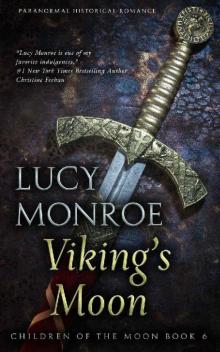 Viking's Moon (Children of the Moon Book 6)
Viking's Moon (Children of the Moon Book 6) Rand (A 3 Brides for 3 Bad Boys Novella)
Rand (A 3 Brides for 3 Bad Boys Novella)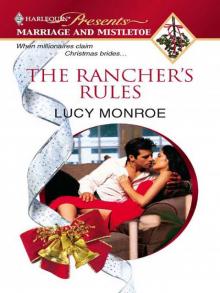 Rancher's Rules
Rancher's Rules Regency Scandals: Touch Me, Tempt Me & Take Me Box Set
Regency Scandals: Touch Me, Tempt Me & Take Me Box Set Hot Alaska Nights
Hot Alaska Nights 2017 Christmas Coda: The Greek Tycoons
2017 Christmas Coda: The Greek Tycoons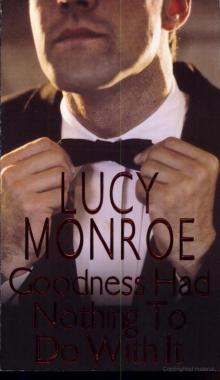 Goodness Had Nothing to Do With It
Goodness Had Nothing to Do With It Kostas's Convenient Bride
Kostas's Convenient Bride Watch Over Me
Watch Over Me After The Billionaire's Wedding Vows…
After The Billionaire's Wedding Vows…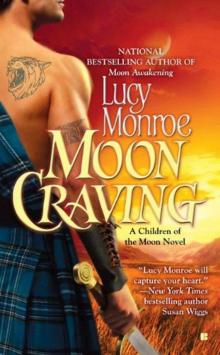 Moon Craving
Moon Craving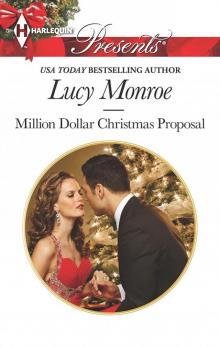 Million Dollar Christmas Proposal
Million Dollar Christmas Proposal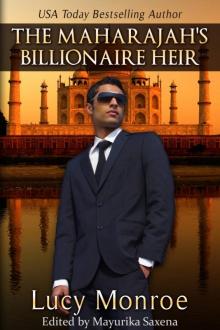 The Maharajah's Billionaire Heir
The Maharajah's Billionaire Heir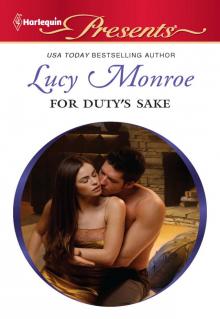 For Duty's Sake
For Duty's Sake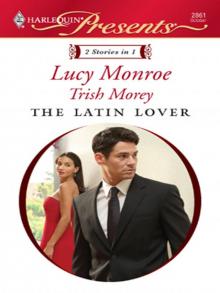 The Latin Lover
The Latin Lover And Able
And Able Silver Bella
Silver Bella The Real Deal
The Real Deal Wild Heat (Northern Fire)
Wild Heat (Northern Fire)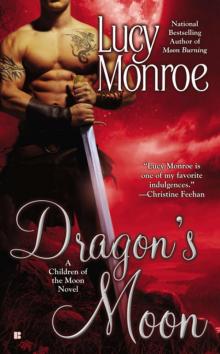 Dragon's Moon
Dragon's Moon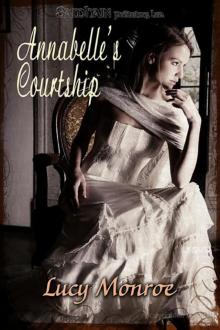 Annabelle's Courtship
Annabelle's Courtship The Spaniard's Pleasurable Vengeance
The Spaniard's Pleasurable Vengeance The Shy Bride
The Shy Bride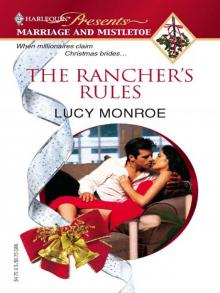 The Rancher's Rules
The Rancher's Rules Sheikh's Scandal
Sheikh's Scandal The Greek's Innocent Virgin
The Greek's Innocent Virgin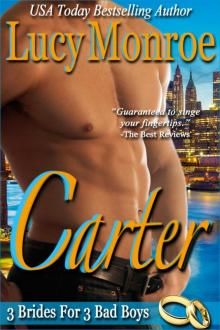 Carter (A 3 Brides for 3 Bad Boys Novella)
Carter (A 3 Brides for 3 Bad Boys Novella)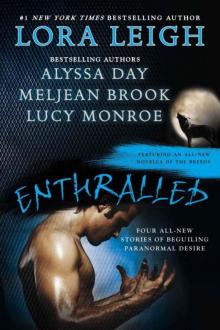 Enthralled
Enthralled Not Just the Greek's Wife
Not Just the Greek's Wife Heart of a Desert Warrior
Heart of a Desert Warrior Scorsolini Baby Scandal
Scorsolini Baby Scandal The Billionaire's Pregnant Mistress
The Billionaire's Pregnant Mistress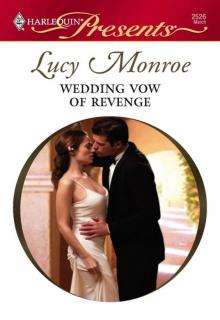 Wedding Vow of Revenge
Wedding Vow of Revenge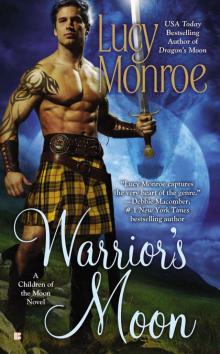 Warrior's Moon
Warrior's Moon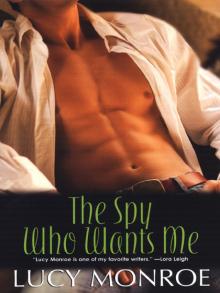 The Spy Who Wants Me
The Spy Who Wants Me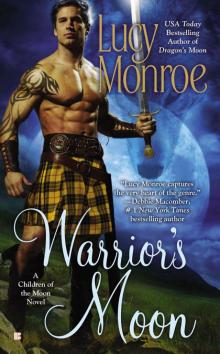 Warrior's Moon cotm-5
Warrior's Moon cotm-5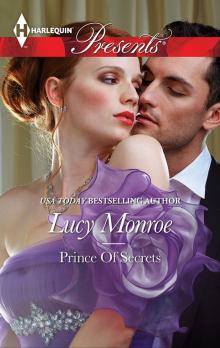 Prince of Secrets
Prince of Secrets The Sicilian’s Marriage Arrangement
The Sicilian’s Marriage Arrangement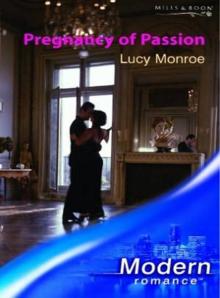 Pregnancy Of Passion
Pregnancy Of Passion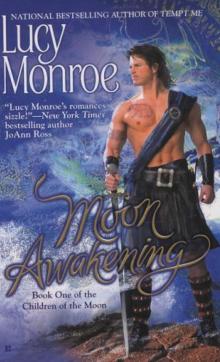 Moon Awakening cotm-1
Moon Awakening cotm-1 Satisfaction Guaranteed
Satisfaction Guaranteed Heatseeker (Atrati)
Heatseeker (Atrati) Willing
Willing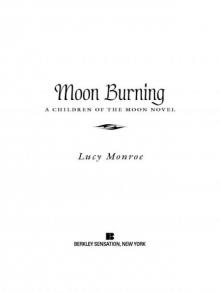 Moon Burning
Moon Burning Close Quarters
Close Quarters Taken the Spaniard's Virgin
Taken the Spaniard's Virgin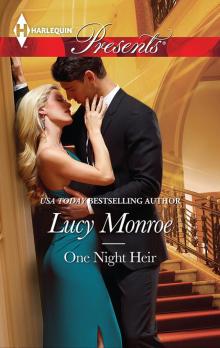 One Night Heir
One Night Heir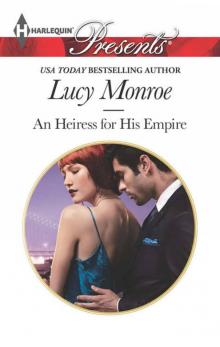 AN HEIRESS FOR HIS EMPIRE
AN HEIRESS FOR HIS EMPIRE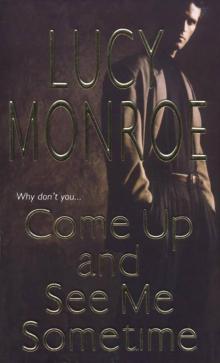 Come Up and See Me Sometime
Come Up and See Me Sometime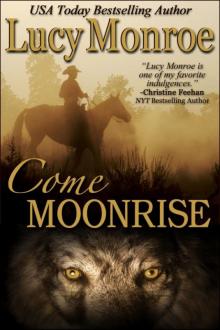 Come Moonrise
Come Moonrise BoughtGreeksBride
BoughtGreeksBride Ready
Ready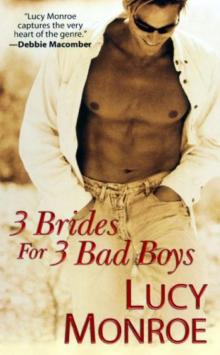 3 Brides for 3 Bad Boys
3 Brides for 3 Bad Boys TOUCH ME
TOUCH ME